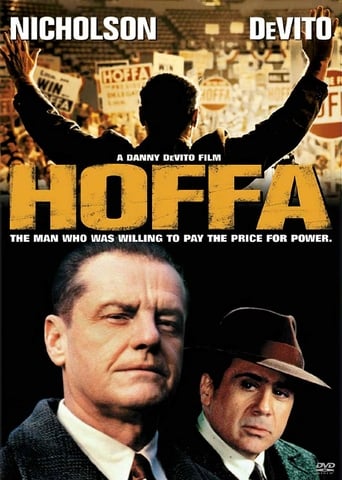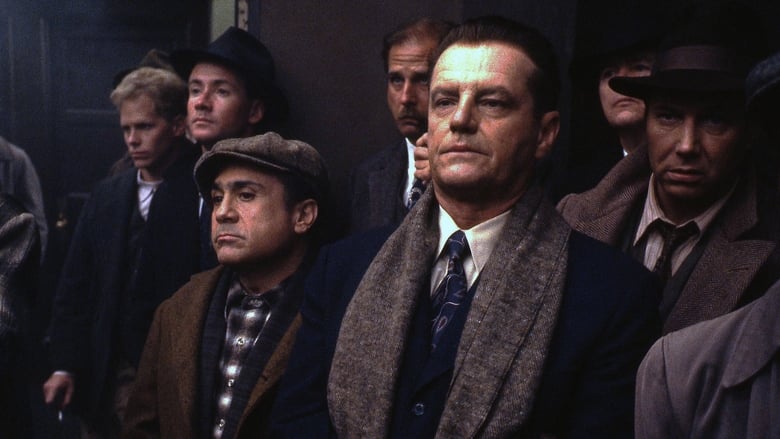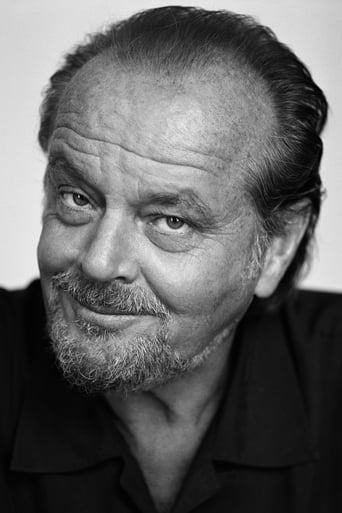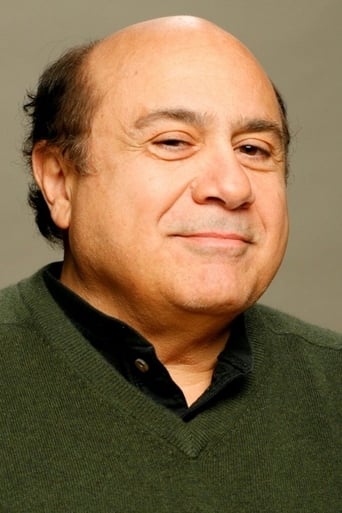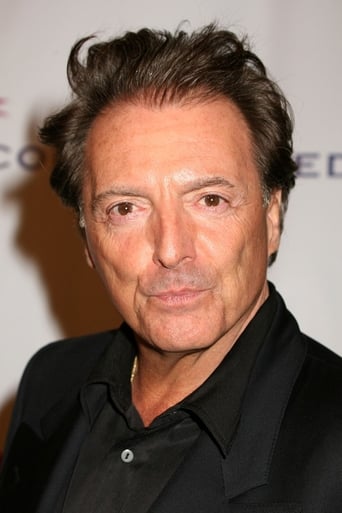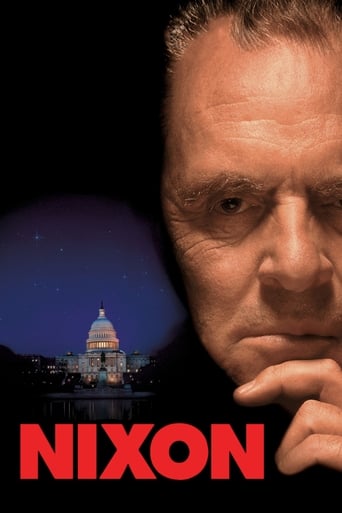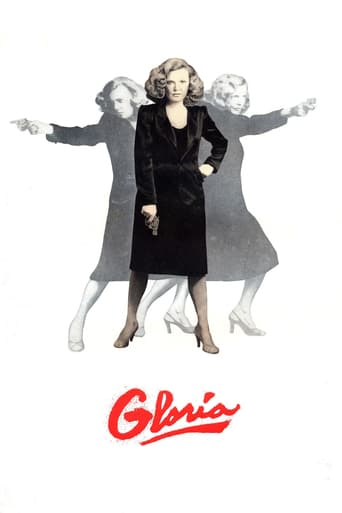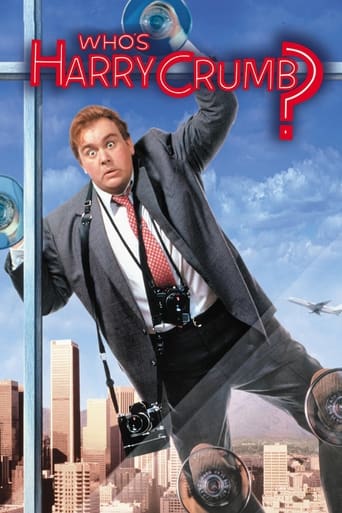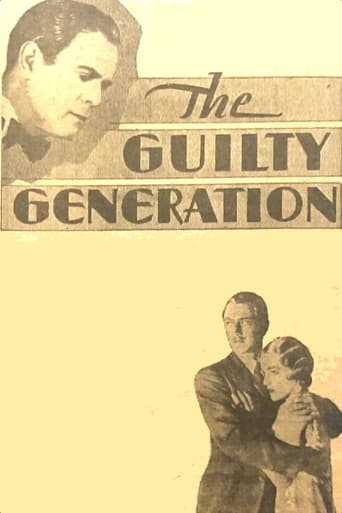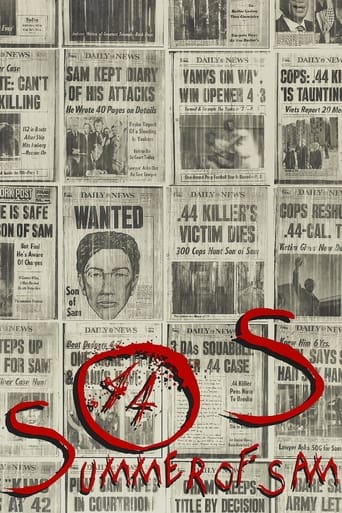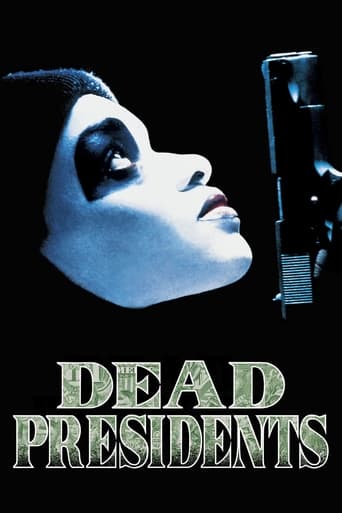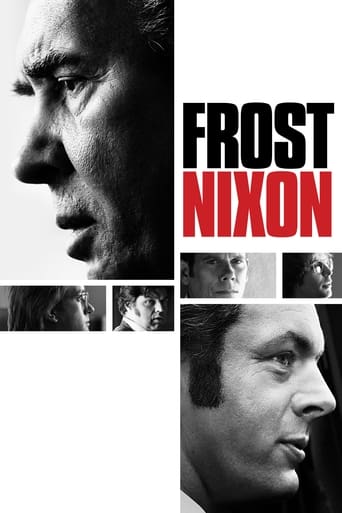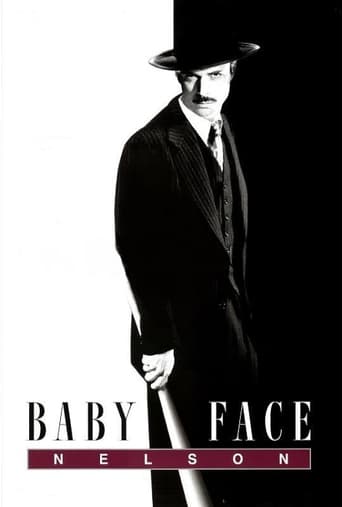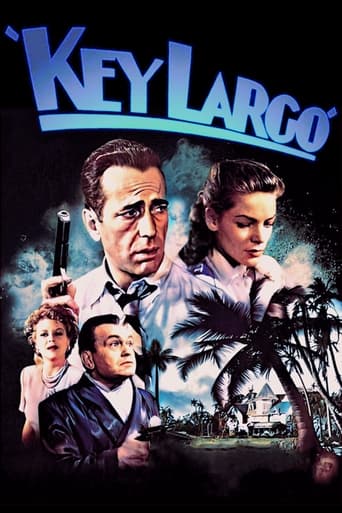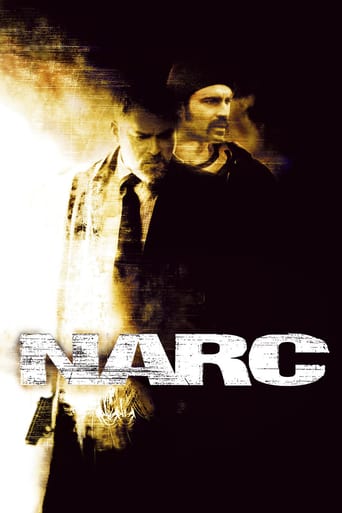Hoffa (1992)
A portrait of union leader James R. Hoffa, as seen through the eyes of his friend, Bobby Ciaro. The film follows Hoffa through his countless battles with the RTA and President Roosevelt.
Watch Trailer
Cast


Similar titles
Reviews
I'm a big fan of historical biopics. I love to watch movies based on real people or events and then look up what was fact and what was fiction. I don't expect movies to be totally accurate to history. I just hope they paint an accurate portrayal of the time in which the events took place. I think this movie did a decent job of that. Showing the tensions between the workers and the employers as well as depicting the political climate of that time. I had a basic knowledge of Jimmy Hoffa going into this movie. I knew he was a labor union leader, president of the Teamsters, had mob affiliations and disappeared without a trace. I'm not sure if this movie really added much more to that knowledge. It did, however, put across the significance of Hoffa's role in the creation of labor unions and pension funds. The film paints Hoffa as a sympathetic figure that did what he had to do, including mob dealings, to get what was best for the American working man. As a film, it felt very "by the numbers", going from this event to that event and wasn't especially compelling. I also wasn't a big fan of the directing style. Also, the look of the film was questionable. There are multiple instances where the background is clearly fake and is distracting. Overall, this was a decent movie and I would recommend it to fans of historical biopics who don't mind a lot of fiction mixed with the facts. 6/10...but that's just like, my opinion, man# Of Times Watched: Once
I purchased a new copy of this movie from a seller who listed it on one of the internet "for sale" sites; I had checked with my library and also with the video rental store in my area and neither one had the movie available. I had just finished reading the 400+ page book, "Hoffa," by Arthur A. Sloane, Ph.D. Mr. Sloan's book told both the good and the bad about Jimmy Hoffa. I learned by reading the book that Jimmy Hoffa typically worked 16-hour days, six and sometimes seven days a week. I also learned that Jimmy Hoffa neither smoked, drank liquor or ever cheated on his wife. The movie realistically portrayed Jimmy Hoffa as doing his utmost for his Teamster members. The movie also realistically portrayed that the two paramount concerns that Jimmy Hoffa had were for his family and for the rank-and-file members of his union.In my opinion, Jimmy Hoffa's downfall was that he chose to associate himself with organized crime, which in the end cost him his life.
The film's production values are great. Visuals look good with attention to detail in sets, costumes, and makeup. Frame composition and especially lighting create a pleasing, artistic effect. Viewers get a real sense of the American rust belt with its snowy landscape, bleak urban factories, and put-upon laborers during the film's rough and tumble social era spanning four decades, from the 1930s to the 1970s.The problem here is the script concept. Though some viewers, for various reasons, will want to watch a film about Jimmy Hoffa, most potential viewers, I suspect, will opt out. A presumed biography of an American labor leader and his worker rights movement from decades ago will be perceived, rightly so, as a cinematic textbook, dry and uninteresting.The David Mamet screenplay isn't even factual. The chain-smoking Bobby Ciaro (Danny DeVito) is an invention, as is the "Young Kid". The plot begins outside a diner called the "Roadhouse"; in fact, the real-life diner was the "Red Fox Restaurant". Other elements about the film's ending also are fictional. The script leaves out Hoffa's threat to kill JFK, which is part of the historical record. Indeed, the script is semi-biographical and somewhat sanitized. And with the huge amount of dialogue, some of which is political speechifying, the story is at times boring.This is a big-budget, extravagant film with an enormous cast of extras, lots of built sets, some of which are huge. The number of speaking roles also is huge. Big-name stars telegraph to viewers that the film has the blessings of mainstream Hollywood. Acting generally is good. With stiff body movements, squinting eyes, and inner passion, Jack Nicholson gives a fine performance as Hoffa. About midway through, Kevin Anderson nails the role of Robert Kennedy.The enormity of the film effort is impressive; yet it also conveys an impression of cinematic self-importance. But the most basic problem is that the central character has largely faded into history, apart from the mystery of his disappearance. In the twenty-first century, Jimmy Hoffa is so very ... retro.
Written with callous virtuosity by Mamet, directed with garishly vintage technique by DeVito, this hugely underrated, passionate, powerful film not only portrays Hoffa with the enhanced corporal magnitude of Nicholson, who gives a massive thrust of a performance, but it also reshuffles the ladder of American heroes as it's recognized nowadays. Several may be uneasily startled: This stylistic take on the life and mysterious disappearance of the Teamsters Union leader views Robert Kennedy as seen by Hoffa: a bellyaching Harvard-educated well-to-do, frantic for exposure, prepared to use evenhanded ways and biased to catch Hoffa, no equal at all for Hoffa in their incensed altercations.In the context of most commercial movies, which insist on explaining too much or repeating the obvious, Hoffa remains a reasonably detached consideration of the career of a man whose ties to the Mafia not only cost the rank-and-file teamsters millions but also set a pattern for corruption that tainted the entire labor movement. It's a quintessentially American story, for only here did Big Labor become a big business to rival Big Business.DeVito and the Great Character Development Skeptic neither romanticizie him or try to explore Hoffa outside his own mechanical justification that you have to do it to others before they do it you. Without commentary, in very broad strokes, they authenticate Hoffa's advancement from minor reformer to big-time shark, power-dealer and mob friend.The movie opens as the edgy, dog-tired Jimmy, convoyed by his committed odd-job guy, conjured character Bobby, waits in a Cadillac in a Detroit cafeteria lot for a rendezvous with an abiding Mafia accomplice. The reminiscences that are the bulk of the film aren't Jimmy's, but the indulgent, diligent Bobby's. He worries about Jimmy's state of affairs, remembering their first meeting in the Depressed 1930s when, one night on the road, Jimmy invited himself into his truck and tried to enlist him for the teamsters. Jimmy was then something of an optimist. As the hours drone on in the lot, Bobby sequentially recalls his way through Jimmy's career.While Bobby's remembrance is tender, this captivating, hazy biopic sees all coolly. This gives this forgotten '90s drama an indignantly cynical tone that is generally uncommon in American movies. It compels us to decide for ourselves, something that can be infinitely puzzling as well as gratifying. The film proposes there are occasions when one must reason for oneself. It doesn't pose as a docudrama or anything close. It's a skillful work of fiction, rooted in fact, devised with ingenuity and a dependable viewpoint.DeVito's direction is crammed with overstated kinesics that appear wholeheartedly consistent with Bobby's exceedingly highlighted reminiscences of life with Jimmy. There are numerous striking overhead shots, whether it's a scene of Jimmy incarcerated or a panoramic view of union men wrestling scabs. Simultaneously, DeVito knows when to use close-ups, that is, to divulge character instead of to intersperse dialogue. When the director shows a recalled explosion and fire, they have the massive scope of something recounted in an anecdote told late at night in a favorite dive.It comes as a surprise, about midway through, to learn that the Teamsters head has a wife and daughter. They appear during a crowd scene. But this film about Jimmy Hoffa has no time to show him meeting his wife, dating her, marrying her, finding their dream house, having a kid. That's about as it should be.Does the movie grant that Jimmy was an instrument of organized crime? Not by any means. Nor does it quite maintain that Hoffa would take any advantage he could get, anywhere he could, to systematize the drivers and press-gang the bosses. He was a union realist, but what makes this movie so beguiling is that we can never entirely peep the romanticism that should be in there somewhere, no glow of internal principle. Something murky must be driving him on a lonesome, ruthless revenge.Nicholson is an actor who can echo virtually anything in his face. His intense, volcanic performance is so good as Hoffa because he betrays virtually nothing. When we first see him, the corporal embellishments are striking. He's filled with spite, not optimism. He organizes for the same reason other guys get in bar fights, because it discharges the intense stresses within.The production is plentiful with period particulars, consecutively in an enduring procession. The truckers' world distinguishes with the world of control occupied by the insiders: The Old World sophistication of the Mafia sociables, for instance, or the rooms where dominant government men dwell. The movie makes its implicit case for union organizing simply by complementing the cabs and roadstops of the drivers with the world of opportunity.This is an inspired and vibrant piece, but is that sufficient? It sharply divided critics, but for me it is. Others will have valid protests to the ways the film works. This genuinely absorbing piece reveals DeVito as a sincere filmmaker. He extracts the core guise and pitch for this material. Not every director would've been self-assured enough to purely show us Jimmy Hoffa rather than narrating all about him. This is a movie that finds its impact between the lines, in what is unstated.

